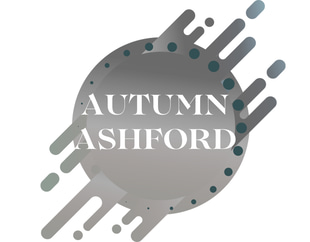The Healing Ink: How Writing Becomes a Path to Growth and Wholeness
Explore how writing heals, empowers, and transforms. Discover the mental health and personal growth benefits of expressive and therapeutic writing.
WRITING
Autumn Ashford
6/24/20255 min read


There is a quiet kind of alchemy in writing. It doesn’t flash like lightning or roar like thunder. It doesn’t arrive with fanfare. Instead, it begins in solitude, usually with a blank page and a feeling—a stirring in the gut, a whisper in the mind, a grief that needs release, or a joy too big to hold inside. For those of us who write, the page becomes a mirror, a sanctuary, and sometimes, a battlefield. But above all, it becomes a place where healing begins and growth takes root.
Writing is often misunderstood as something we do for others—stories for readers, blogs for followers, reports for managers. But for many writers, the true magic happens before the world ever sees a word. Writing is deeply, profoundly personal. It is a journey inward that paradoxically becomes a bridge outward. In writing, we don’t just craft narratives. We reclaim our voices, make sense of our pain, and explore who we are becoming.
The Power of Self-Reflection Through Writing
At its core, writing is self-reflection in motion. When we put words to paper, we give form to things that previously existed only in foggy corners of our minds. Emotions, memories, dreams, and fears that once drifted shapelessly through our consciousness take shape on the page.
Consider journaling—the most private, personal form of writing. It’s not about sentence structure or grammar. It’s about truth. We write our confusion, our heartbreaks, our frustrations, and our questions. Sometimes, we write answers we didn’t know we had. By naming our experiences, we start to understand them. We slow down enough to feel what we often rush past.
This process is therapeutic, even when it hurts. Especially when it hurts. Writing becomes a container to hold our sorrow, a dialogue with our inner selves, and a way to create meaning from chaos. As the psychologist James Pennebaker’s research has shown, expressive writing—writing about our deepest thoughts and feelings—has real healing benefits. It improves mental clarity, emotional resilience, even physical health.
Writing is not always a comfortable act. It forces us to look at things we might prefer to avoid. But in that discomfort is growth. We cannot move forward until we understand where we are—and writing helps us understand.
Writing as a Means of Control in Uncertain Worlds
Life is unpredictable. We face loss, betrayal, illness, disappointment. We’re often asked to carry burdens that feel too heavy. In the face of such chaos, writing becomes a tool of reclamation. When everything else feels out of our control, the page is ours. We choose the words. We decide the tone. We build worlds. We find metaphors for pain, structure for disorder, rhythm for rage.
In fiction, we can rewrite endings. We can rescue the lost. We can bring justice where there was none. We can imagine healing in the very places where we once bled.
Even in nonfiction—even in memoir or personal essays—we exert power over our narrative. Writing allows us to say: this happened to me. This is how I felt. This is what I carry. And most importantly, this is how I survived.
That sense of authorship—of crafting the story of our lives—is empowering. It shifts us from being passive recipients of pain to active participants in our own transformation. We may not control what happened, but through writing, we control how it is remembered and what meaning we make of it.
Finding Identity Storytelling
Writing doesn’t just help us process the past—it helps us shape the future. Every time we write, we are deciding who we are and who we want to be. We choose which parts of ourselves to explore and which to shed.
Writing can be a place to experiment with identity. We can write ourselves braver, kinder, freer. We can write the version of ourselves that dreams instead of fears, that forgives instead of holds on. And the more we write those selves, the more real they become.
This is especially true in character development. Writers often say that their characters teach them things. That’s no accident. Characters are often projections of our inner worlds. We write a protagonist who learns to love herself because part of us longs to do the same. We write a hero who chooses forgiveness, and in doing so, we begin to loosen our own grip on old wounds.
Through storytelling, we rehearse life. We imagine possibilities. We challenge assumptions. We grieve out loud. We make room for joy. And in doing so, we begin to rewrite our inner narratives—not just on the page, but in the way we live.
The Courage to Be Seen
To write authentically is to risk being seen. There is no hiding behind the page if you’re doing it right. You bleed a little. You tell the truth—your truth. That is not easy. It’s vulnerable. But it’s also one of the most healing things a human being can do.
When we write our real stories—when we stop performing and start revealing—we open the door for connection. We say to the world: “Here I am. This is what I’ve lived. This is what I’ve felt.” And in response, others say, “Me too.”
That connection is part of the healing. Because pain, when unspoken, isolates. But pain, when named and shared, unites. It builds bridges between people who would otherwise remain strangers. And it reminds us that we are not alone.
There is nothing more powerful than writing something raw and true—and having someone say, “Thank you. That’s exactly how I feel. I just didn’t have the words.”
Writing as Ritual and Practice
Healing isn’t a one-time event. It’s a process, a spiral. Some days we feel whole, and some days we feel like shattered glass. That’s why writing isn’t just catharsis—it’s a practice.
The act of showing up to the page, over and over again, becomes a kind of ritual. We return to ourselves through the rhythm of our own words. We track our evolution. We witness our resilience. We celebrate our insight.
Some writers keep gratitude journals. Some write morning pages, as Julia Cameron recommends in The Artist’s Way. Some write poetry. Some write blog posts, novels, essays, or letters never meant to be sent. The form doesn’t matter. The showing up does.
Each time we write, we peel back another layer. We unearth something. We build self-trust. And as we build that trust, we grow—not just as writers, but as human beings.
The Community of Healing Words
Though writing often starts in solitude, it doesn’t have to end there. One of the greatest gifts a writer can give—or receive—is community.
Workshops, critique groups, blogs, open mics, and online forums offer spaces where writers come together. In these spaces, we learn to hold each other’s truths with gentleness. We learn to celebrate each other’s voices. We learn that our stories, even the broken ones, matter.
And when we read the work of others—when we are moved by someone else’s honesty—we are reminded of the universal power of writing. Someone, somewhere, wrote something that saved us. Someone wrote the words we needed at the moment we felt most lost. And maybe, just maybe, our words will do that for someone else.
That possibility—that hope—is enough to keep us going.
Closing: Writing as Becoming
Writing is more than craft. It is more than profession. For many, it is salvation. It is the thread that stitches our wounds. It is the compass that points us home.
We do not have to be published to be healed by writing. We do not need a degree or a platform or a thousand followers. We just need a willingness to be honest and a courage to begin.
Write your grief. Write your joy. Write your past. Write your hopes. Write your dreams. Write your shadows. Write yourself whole.
Because in writing, we don’t just tell stories.
We become them.
